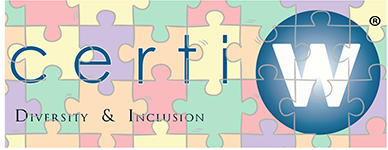

### Sustainability and Green Claims: Truth or Illusion?
In recent years, there has been an exponential increase in food and non-food products boasting ecological features in supermarkets and stores, raising questions about the real intentions of companies. It’s legitimate to ask whether this wave of green marketing is the result of genuine sensitivity towards the environment, or if it is merely a commercial mirage aimed at attracting increasingly informed and conscientious consumers.
In fact, not all eco-friendly claims found on product labels are backed by concrete data. Many of these green claims reveal incomplete or sometimes even incorrect information. However, not all of these communications stem from bad faith. Often, the cause lies in a lack of communicative clarity and understanding of the topic among companies. This leads to widespread confusion among consumers, making it urgent to implement measures that can guide toward correct and transparent communication.
### Towards New Regulations
In response to these issues, the European Union has introduced two significant directives. The first, known as the Greenwashing Directive, was approved in February 2024 and is now being adapted to national regulations. This directive aims to clarify sustainability communication, requiring that ecological information is supported by evidence verified by independent third parties. The second upcoming regulation will address Green Claims, introducing even more specific requirements and operational tools.
A crucial aspect of these regulations is that evidence must be established before products are brought to market and must consider the entire product lifecycle. This integrated approach represents a significant step forward in increasing corporate accountability in presenting their products as sustainable.
### The Challenges of the Regulatory Context
During meetings and conferences, such as the one organized by EconomiaCircolare.com at the recent edition of Ecomondo, the complexities of European regulations were discussed. Experts and industry operators highlighted the challenge of balancing the need for simplification with the necessity of regulation.
An MEP raised the fundamental question of what it actually means to “be sustainable.” The European directives seek to address these questions, but the regulatory approach proves to be complex and sometimes fragmented. The idea was raised that the two directives could have been unified into a single regulatory measure to ensure greater clarity.
### Verification and Transparency Tools
A central theme that emerged is the importance of having robust and transparent verification tools. EMAS (Eco-Management and Audit Scheme) and the Ecolabel are certification tools that can play a crucial role in the fight against greenwashing. However, according to some experts, it is essential that these tools communicate with each other to avoid self-referential approaches that may detract from real transparency.
In this context, it was noted that measuring carbon footprint and adopting ISO standards for verification could help clarify product information. The data must be validated by third-party entities that use the same criteria, thus ensuring a coherent and internationally recognized approach.
### Communicating Sustainability: The Companies’ Perspective
Companies have a significant role in this scenario. It is crucial that they learn to communicate clearly and honestly about the sustainability of their products. A representative from the sector emphasized the importance of wood as a biological material but also highlighted that it is essential to demonstrate the origin of raw materials and compliance with forestry management regulations.
Sustainability cannot be taken for granted simply because a product is made from natural materials. Transparency in business practices is vital, as consumers are increasingly able to recognize when…


